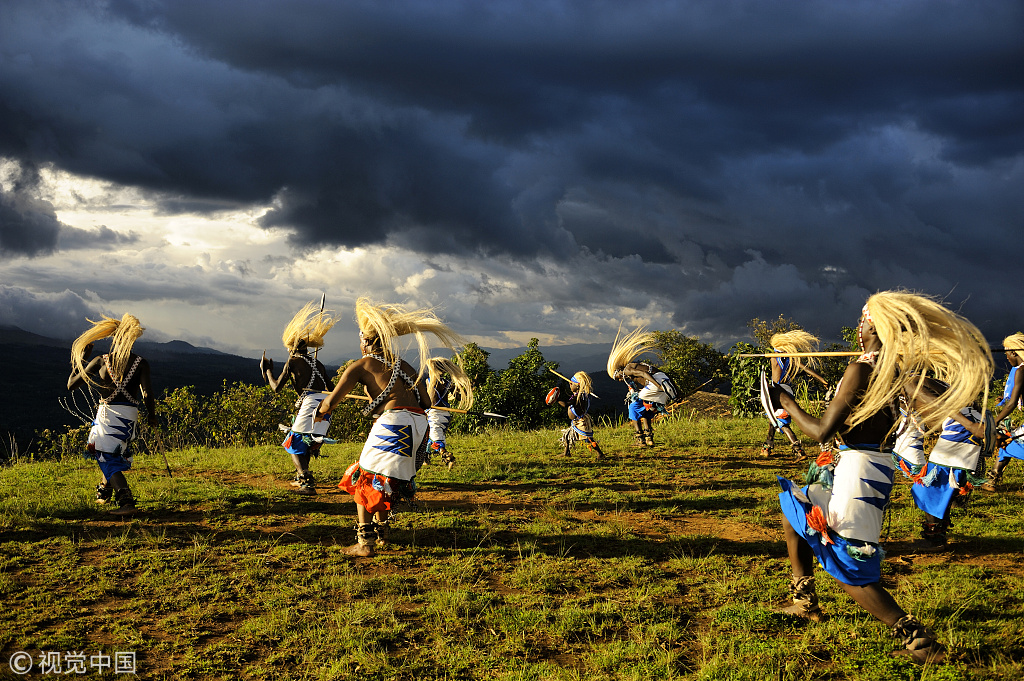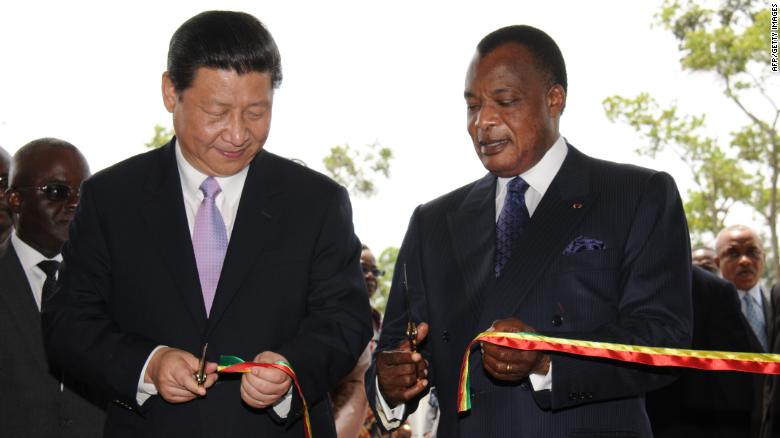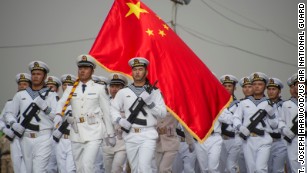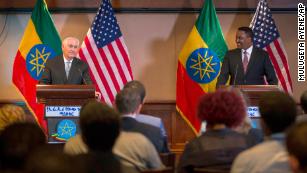日志
Rwanda Seeks to Grow Links with China's belt and road 卢旺达融入“一带一路” ... ...
|
Aug. 21, 2017, Rwanda Seeks to Grow Links as China Looks to Curb Spending
The Summary of China's Belt and Road initiative and its implications for Africa - WWF
According to the Chinese Foreign Minister Wang Yi, the Belt and Road Initiative is the most important feature of China’s foreign policy1. The Initiative aims to interconnect countries in Asia, Europe and Africa through an ambitious vision for infrastructure, economic and political cooperation. Since China’s President Xi Jinping first proposed the Initiative in 2013, it has mainly focused on Asia and Europe where it has unfolded at a breathtaking speed through the signing of dozens of bilateral agreements and the implementation of first large scale infrastructure projects. It is only now that it starts to become clear how Africa will participate in the Initiative with first bilateral agreements signed with South Africa in 2015 and Egypt in 2016.
The objective of this study is to summarize and analyze best available information on the Belt and Road Initiative in the context of China-Africa relations and develop scenarios on how the Initiative is likely to unfold in Africa. The study pursues this objective by offering a first-of-its-kind overview of key actors and institutional arrangements of the Belt and Road Initiative in China and Africa before developing a ranking of African countries that are likely to become part of the Initiative. The study finds that in addition to South Africa and Egypt, Angola, Kenya and Tanzania are likely to be immediate Belt and Road Initiative countries and the Republic of Congo, Ethiopia, Nigeria, Morocco, and Mozambique to join in the near future.
China and African countries have agreed on various occasions that China’s initial development approach of ‘pollute first, clean up later’ should not be replicated on the African continent. It is therefore paramount to ensure that Belt and Road Initiative activities support the sustainable development of African countries. The study reviews potential positive and negative impacts of the Initiative and concludes that negative impacts can be managed by focusing on implementing respective provisions that African countries have agreed to in the African Union Agenda 2063’s First Ten-Year Implementation Plan (2014-2023) as well as by building on provisions of the Belt and Road Initiative vision document and the Forum on China-Africa Cooperation Johannesburg Action Plan (2016-2016).
Xi Jinping heads to Africa to clinch China's hold over the continent
https://www.cnn.com/2018/07/18/asia/xi-jinping-africa-visit-intl/index.html
Beijing, China (CNN)Chinese President Xi Jinping heads to Africa this week as Beijing moves to further cement its role as one of the continent's closest economic and diplomatic allies.
'Spreading the love'
Neo-colonialism?
Full text of Chinese President Xi's signed article on Rwandan media

BEIJING - Chinese President Xi Jinping on Saturday published a signed article titled "China and Rwanda: A Friendship Higher than Mountains" on mainstream Rwandan newspaper The New Times ahead of his state visit to the African country.
The following is the full text of the article:
China and Rwanda: A Friendship Higher than Mountains Xi Jinping President of the People's Republic of China
At the invitation of President Paul Kagame, I will pay a state visit to Rwanda from 22 to 23 July. It will be not only my first visit to Rwanda but also the very first visit to Rwanda by any Chinese President. I am full of expectation for this visit.
Known as the "land of a thousand hills", Rwanda is blessed with picturesque sceneries, a spring-like weather all year round, and rich endowment of natural resources. Thanks to the unremitting efforts of the brave and hard-working Rwandan people, this country has remained a vibrant land on the African continent.
In recent years, under the leadership of President Kagame, the government and people of Rwanda have made pioneering efforts to blaze a development path that suits its national conditions. Enjoying good governance and social harmony, Rwanda is making progress on every front of development. With sustained stability and robust economic growth, Rwanda has seen a continued rise in its regional and global influence, and has set an example for countries who face the similar tasks of national development and rejuvenation in Africa and beyond. I am heartened to see these accomplishments and sincerely wish Rwanda still greater success on its way forward.
As a Chinese poem reads, "Good friends feel close to each other even when they are thousands of miles away." Despite the vast geographic distance and differences in size, system and culture between China and Rwanda, our peoples enjoy a deep traditional friendship. Both our two countries endured great sufferings in history. That is why we cherish the national stability, ethnic unity and economic development we now enjoy, and take pride in what we have accomplished along the way.
China and Rwanda established diplomatic relations in 1971. Over the past 47 years, our two countries have treated each other as equals with sincerity and friendship. Based on mutual trust and assistance, our friendship has stood the test of the changing international landscape and taken root in our people's hearts. In recent years, thanks to the concerted efforts of both sides, our bilateral ties have achieved fast expansion and demonstrated fresh vitality with fruitful cooperation in all areas. China has become Rwanda's biggest trading partner and project contractor. We are glad to see that the Amahoro National Stadium built by China has hosted many spectacular sports games and become a popular recreation and entertainment venue for the Rwandan people. The Musanze Integrated Polytechnic Regional Colleague has grown into the biggest professional training center in the Northern Province. The project of drilling 200 wells, soon to be delivered, will help ease water shortages for over 110,000 people. The garment factory that a Chinese entrepreneur has set up in response to President Kagame's "Made in Rwanda" development initiative is playing a positive role in growing Rwanda's manufacturing sector. Another Chinese company has made itself a household name in Rwanda as it undertakes 70% of Rwanda's national highway construction.
People-to-people friendship holds the key to good state-to-state relations. The rich and diverse people-to-people exchanges between our two sides have led to a growing interest in China and Chinese culture among the Rwandan people. Each year, several hundred talented young Rwandan students go to study in China on Chinese government scholarships. The number of registered students in the Confucius Institute at the University of Rwanda is approaching 5,000. The Rwanda Kung Fu/Wushu Federation has over 2,000 participants. At the Masaka Hospital and the Kibungo Hospital, two hospitals built by China, caring and highly-skilled members of the Chinese medical teams are providing much needed services to more than 600,000 local people. Digital TV services will soon be brought to 300 villages in Rwanda under an ongoing project of providing access to satellite TV to a total of 10,000 Rwandan villages, enriching the cultural life of over 150,000 rural residents.
With Rwanda actively implementing its Vision 2020 Umurenge Program and China working toward its centenary goals, historic opportunities beckon for our cooperation. During his visit to China in March 2017, President Kagame and I reached important consensus on deepening cooperation in various fields under the new circumstances and made overall plans for the future growth of relations between our two countries. I hope my upcoming visit will inject new impetus to our traditional friendship and all-round cooperation, take bilateral relations to a new level, and produce fruitful results to the benefit of our peoples.
-- We need to uphold mutual respect and deepen political mutual trust. We should view and grow our relations with a strategic and long-term perspective. By way of enhancing exchanges and cooperation at all levels and sharing development experience, we will be able to cement the political foundation for the sound, steady and sustained growth of our relations. China firmly supports Rwanda in following the development path it has independently chosen.
-- We need to connect our development strategies and expand cooperation in all areas. By leveraging our complementarities and broadening the scope and channels of cooperation, we will be able to advance practical cooperation in infrastructure, mining, trade and investment, translating our friendship into concrete outcomes and delivering more benefits to our peoples.
-- We need to promote mutual learning between civilizations and further enhance people-to-people exchanges. Deeper exchanges and cooperation in education, culture, health, tourism, aviation and human resources training will help cement the social foundation for bilateral relations and gain increasing public support for our friendship.
-- We need to strengthen collaboration in international affairs through closer communication and coordination. China commends and supports the efforts of Rwanda, the rotating chair of the African Union (AU), to play a bigger role in preserving Africa's unity and promoting its development. Our two countries will continue to firmly uphold the common interests of developing countries through close communication and coordination in regional and international affairs.
The friendship between our two countries is an epitome of the friendship between China and Africa. For decades, China and Africa have treated each other with sincerity and friendship. We are a community with a shared future and common interests, featuring solidarity and win-win cooperation. Going forward, China will continue to deepen communication, mutual trust and cooperation with Rwanda and with other friendly African countries, based on the principles of sincerity, real results, affinity and good faith and the approach of upholding justice and pursuing shared interests. In just over a month's time, China will host a summit of the Forum on China-Africa Cooperation (FOCAC) in Beijing. I will welcome President Kagame to the summit in his capacity as President of Rwanda and as the rotating AU chair. I look forward to meeting with him and other leaders of FOCAC members to draw up a blueprint for furthering China-Africa friendship and cooperation and promoting our future development.
The decades-old Umuganda culture in Rwanda encourages joint efforts and mutual help for common goals. A Chinese saying contains a similar message, "People with one mind and heart have the power to move a mountain." In a world of increasing inter-connection and inter-dependence, countries are faced with many common challenges. It is important for China and Rwanda to join hands for mutual benefit and common development and for a community with a shared future between our two countries and between China and Africa as a whole. I am convinced that with the joint efforts of our two governments and peoples, China-Rwanda relations will embrace an even brighter future.













